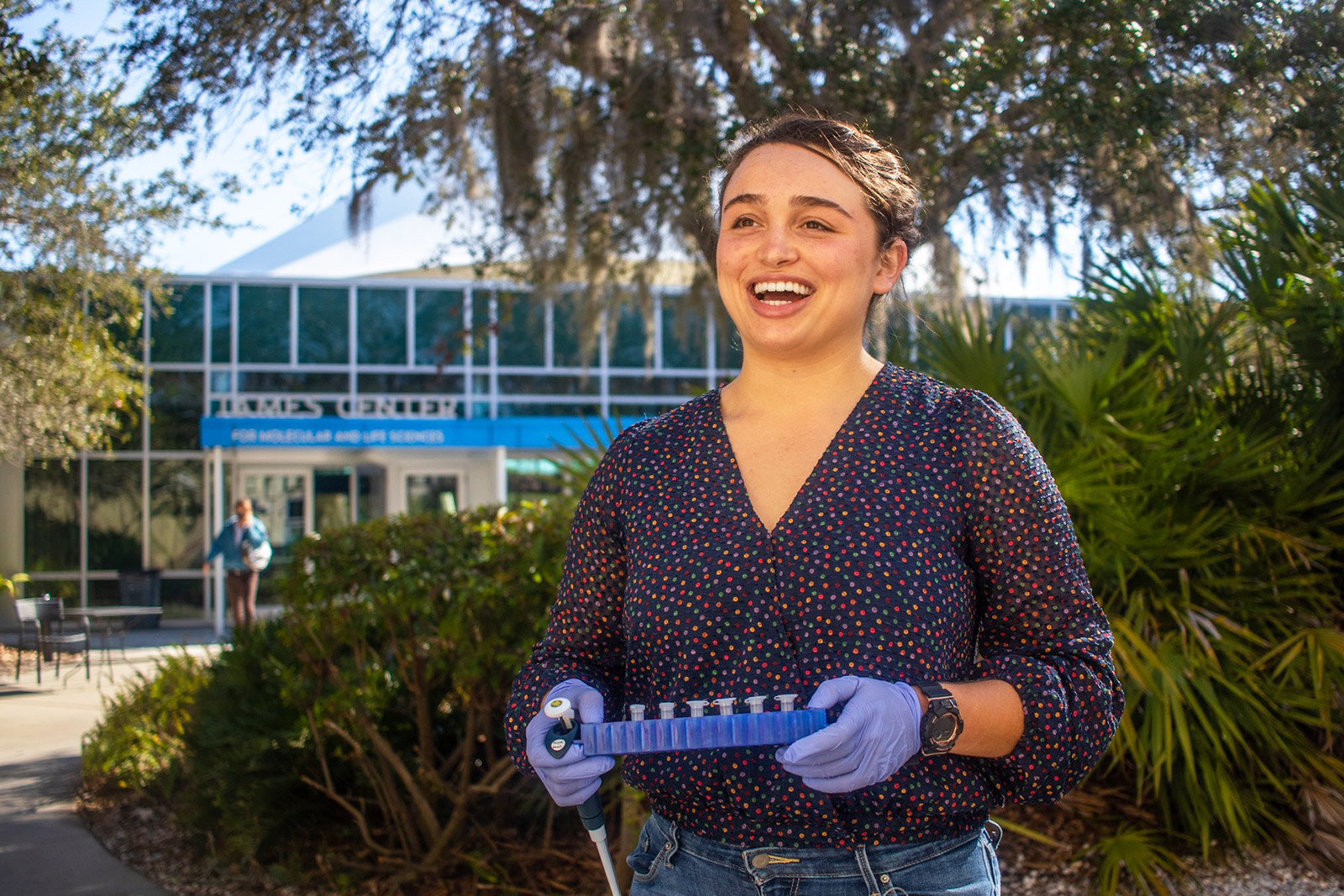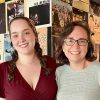Eckerd College senior Maiah Brush, a biochemistry student from Longmeadow, Massachusetts, has received a prestigious Student Intramural Research and Training Award (IRTA) that will allow her to participate in a two-year fellowship program at the National Institutes of Health (NIH) headquarters in Bethesda, Maryland, the NIH announced recently.
Like many research training programs at the NIH, the IRTA program is highly competitive. Over the past calendar year, about 24% of applicants were selected for the program. Maiah is the second Eckerd student to receive the award; Carina Graham ’17, a biology graduate from Potomac, Maryland, was the first.
The goal, according to the IRTA website, is to match student research interests with a basic neuroscience laboratory or clinical branch where those interests might be pursued. Participants work a minimum number of weeks with established investigators, receive training in research procedures and conduct research in selected areas of investigation under the guidance of an assigned preceptor. Students typically go on to graduate or medical school.
Maiah will be working with Rebecca Brown, M.D., of the National Institute of Diabetes and Digestive and Kidney Diseases, a part of the NIH. “Our goal is to understand the basic mechanisms regulating energy metabolism in humans,” Brown states on her webpage. “We use rare diseases as models to understand perturbations in pathways regulating energy metabolism and apply what we learn from rare diseases to common conditions such as obesity and the metabolic syndrome.”
Maiah Brush works in the Young-Erdos Laboratory in the James Center for Molecular and Life Sciences.
Maiah is an Eckerd College Ford Scholar, a shift leader on the Eckerd College Search and Rescue (EC-SAR) Team, and last year she found time to choreograph the Eckerd theatre production Heathers—The Musical. “That was a really great experience,” she says. “I had done that in high school, and it really brought out the creative side again.”
Maiah also completed a summer internship last year at the Center for Human Genetic Research in Harvard Medical School’s Massachusetts General Hospital Research Institute. The internship was established by Eckerd Board of Trustees member Susan Slaugenhaupt ’85 (P ’20), Ph.D., the scientific director and a professor of neurology at the hospital’s scientific institute.
But for Maiah, it all started her first year at Eckerd. “I remember my first experience with Maiah,” says Crystal Young-Erdos, Ph.D., assistant professor of chemistry and Maiah’s mentor. “She sat in the front row of my General Chemistry II class and was regularly engaged, despite it being 8:20 a.m.
“She was also always early, so we often chatted before class. It was through those conversations that I learned she was a marine science major but was quite interested in biomedical research. Before the end of the semester, I recruited her to be a biochemistry major. Maiah is an excellent student, the kind we all love to work alongside.”
For her thesis, Maiah, who has done the bulk of her research with Young-Erdos, is investigating an RNA helicase that is involved in the maturation of ribosomes, the machinery that makes protein in all cells. She is changing individual amino acids, or protein building blocks, and observing how these modifications affect cell growth. Collectively, she aims to better understand the molecular mechanism of this RNA helicase. “Since protein synthesis limits cancer cell growth, understanding the roles of different players in the ribosome assembly process could allow us to better design therapeutics,” Young-Erdos says. “In a broader sense, Maiah’s work in my lab at Eckerd has also given her a foundation of skill sets that will help her be successful in her next experience.”
The relationships Maiah has built at Eckerd are just as meaningful. “I was so struck by how enthusiastic and passionate Dr. Young-Erdos was about chemistry,” Maiah says. “And general chemistry concepts apply to so many other areas. And I owe a lot to Dr. Kat [Robinson, assistant dean of faculty]. I told her I wanted to do clinical research before applying to medical school, and she pointed me to the IRTA program.
“I don’t think I would have this opportunity if I didn’t go to Eckerd,” she adds. “The faculty relationships and constant support, the willingness to write recommendations, and just the research experience I’ve gained here.”














